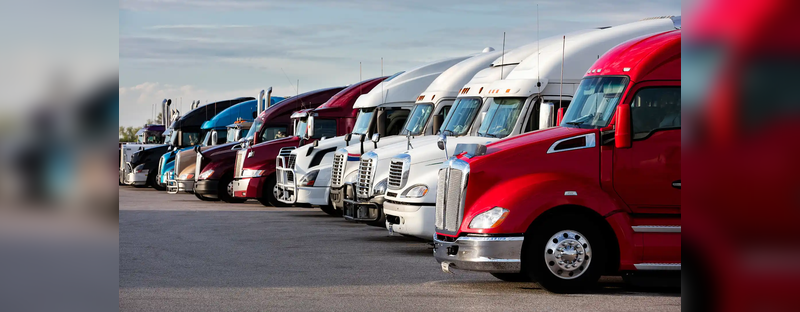
Introduction
The trucking industry is a vital component of New York’s economy, ensuring the efficient transportation of goods across the state and beyond. Given the high-risk nature of the job, workers’ compensation insurance is crucial to protect truck drivers and ensure the financial stability of trucking companies. This article delves into the specifics of workers compensation insurance for trucking in New York, covering legal requirements, benefits, challenges, and strategies for effective cost management.
Legal Requirements
In New York, workers’ compensation insurance is mandatory for most employers. Under the New York Workers’ Compensation Law, all businesses with employees must provide workers’ compensation coverage. This includes trucking companies, ensuring that truck drivers are protected in the event of work-related injuries or illnesses. The New York State Workers’ Compensation Board oversees the administration and enforcement of workers’ compensation laws. Employers who fail to provide the required coverage can face significant penalties, including fines, stop-work orders, and potential criminal charges.
Coverage and Benefits
Workers’ compensation insurance for trucking companies in New York offers several essential benefits:
- Medical Benefits: Covers the cost of medical treatment for injuries or illnesses sustained on the job, including hospital visits, surgeries, medications, and physical therapy.
- Temporary Total Disability (TTD): Provides wage replacement benefits if an injured worker is temporarily unable to work due to a work-related injury or illness. These benefits typically amount to two-thirds of the employee’s average weekly wage, subject to a maximum limit set by the state.
- Permanent Partial Disability (PPD) and Permanent Total Disability (PTD): If a worker sustains a permanent injury that partially or totally impairs their ability to work, they may receive PPD or PTD benefits. The amount and duration of these benefits depend on the severity and nature of the disability.
- Vocational Rehabilitation: Provides services to help injured workers return to work, including job training and placement assistance.
- Death Benefits: In the unfortunate event of a work-related fatality, workers’ compensation insurance provides death benefits to the dependents of the deceased worker. This includes a portion of the deceased worker’s wages and coverage for funeral expenses.
Challenges in the Trucking Industry
The trucking industry in New York faces unique challenges related to workers’ compensation insurance:
- High Risk of Injuries: Truck drivers face a high risk of injuries due to accidents, long hours on the road, and physical strain from loading and unloading cargo. These risks often lead to higher insurance premiums for trucking companies.
- Urban and Congested Areas: New York’s dense population and congested roadways increase the likelihood of accidents, complicating the management of workers’ compensation claims and increasing costs.
- Interstate Operations: Many trucking companies in New York operate across state lines, creating complexities in administering workers’ compensation claims and determining the appropriate jurisdiction and applicable laws.
- Employee Misclassification: Some trucking companies misclassify drivers as independent contractors to avoid providing workers’ compensation coverage. New York law has strict criteria for such classifications, and misclassification can lead to significant legal and financial consequences.
Strategies for Managing Workers’ Compensation Costs
Trucking companies in New York can implement several strategies to manage and reduce their workers’ compensation costs:
- Robust Safety Programs: Establishing comprehensive safety programs can significantly reduce workplace injuries. These programs should include regular safety training, vehicle maintenance checks, and promoting a culture of safety within the company.
- Health and Wellness Initiatives: Addressing long-term health issues through wellness programs can help prevent injuries and improve overall employee health. Initiatives such as ergonomic assessments, fitness programs, and health screenings can be beneficial.
- Return-to-Work Programs: Developing return-to-work programs helps injured employees transition back to work through modified duties. This approach reduces the duration of disability benefits and overall claim costs while maintaining employee morale.
- Accurate Employee Classification: Ensuring that all employees are correctly classified and covered under workers’ compensation insurance prevents legal issues and ensures compliance with state laws.
- Regular Review of Claims: Monitoring and reviewing claims can help identify patterns and address recurring issues. This proactive approach to risk management can lead to better control of insurance costs.
Case Studies
- Empire State Transport: Empire State Transport implemented a rigorous safety training program focused on defensive driving and proper cargo handling techniques. They also introduced a health and wellness program addressing common health issues among truck drivers, such as back pain and cardiovascular health. As a result, they saw a significant reduction in workplace injuries and a 20% decrease in workers’ compensation premiums over two years.
- Hudson Valley Logistics: Hudson Valley Logistics faced high workers’ compensation costs due to frequent claims from road accidents. They partnered with an occupational health provider to create a return-to-work program, allowing injured employees to perform light duties while recovering. This initiative not only shortened the duration of disability claims but also improved employee retention and job satisfaction.
Conclusion
Trucking Workers comp is a critical component of protecting the workforce in New York’s trucking industry. The high risk of injuries and the complexity of interstate operations present significant challenges, but proactive strategies such as safety programs, wellness initiatives, return-to-work programs, and proper employee classification can help manage and reduce costs. Ensuring compliance with New York’s workers’ compensation laws not only safeguards employees but also contributes to the stability and success of trucking companies. By fostering a safer work environment and efficiently managing claims, trucking companies can mitigate risks and promote a more sustainable and productive industry. In a state where trucking is essential to economic vitality, prioritizing the health and safety of truck drivers through comprehensive workers’ compensation coverage is both a legal obligation and a moral imperative.











